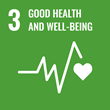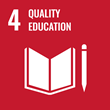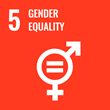Project information
National Institute of Virology and Bacteriology
(NIVB)

- Project Identification
- LX22NPO5103
- Project Period
- 6/2022 - 12/2025
- Investor / Pogramme / Project type
-
Ministry of Education, Youth and Sports of the CR
- national recovery plan
- 5.1 EXCELES
- MU Faculty or unit
-
Central European Institute of Technology
- prof. RNDr. Robert Vácha, PhD.
- Mgr. Gabriel Demo, Ph.D.
- Mgr. Martina Drabinová
- Francesco Luca Falginella, Ph.D.
- Ing. Tibor Füzik, Ph.D.
- Mgr. Mária Gondová
- Ing. et Ing. Miroslav Haman
- Mgr. Adelheid Hanáčková
- Ing. Ondřej Kroutil, Ph.D.
- Timothée Emmanuel Jonathan Rivel, Ph.D.
- Mgr. Jana Salamonová
- prof. RNDr. Robert Vácha, PhD.
- Other MU Faculty/Unit
-
Faculty of Medicine
- prof. MUDr. David Šmajs, Ph.D.
- Mgr. Juraj Bosák, Ph.D.
- Mgr. Matěj Hrala, Ph.D.
- prof. MUDr. Petr Husa, CSc.
- MUDr. Petr Husa, Ph.D.
- Lucie Labská
- Monica Medappa, Ph.D.
- Mgr. Petra Pospíšilová, Ph.D.
- Jana Růžičková
- doc. MUDr. Svatava Snopková, Ph.D.
- RNDr. Mgr. Eliška Vrbová, Ph.D.
- Other MU Faculty/Unit
-
Faculty of Science
- prof. RNDr. Roman Pantůček, Ph.D.
- Mgr. Tibor Botka, Ph.D.
- Lenka Buňatická
- prof. RNDr. Jiří Doškař, CSc.
- Mgr. Adéla Finstrlová, Ph.D.
- Mgr. Jiřina Havránková
- Mgr. Vojtěch Kovařovic, Ph.D.
- Mgr. Lucie Kuntová, Ph.D.
- Mgr. Ivana Mašlaňová, Ph.D.
- Mgr. Michal Zeman, Ph.D.
- Cooperating Organization
-
Institute of Microbiology of the ASCR, v. v. i.
Institute of Molecular Genetics of the ASCR, v. v. i.
Institute of Organic Chemistry and Biochemistry of the ASCR, v. v. i.
- Responsible person RNDr. PhDr. Zdeněk Hostomský, CSc.
Palacký University, Olomouc
Prague Institute of Chemical Technology
Biological Centre of the ASCR, v. v. i.
Basic and oriented or clinical research on viruses and pathogenic bacteria is essential to understand the processes by which they cause disease, how they escape the immune system and how they can resist treatment. Therefore, research activities at the National Institute of Virology and Bacteriology will focus on characterizing pathogens causing existing and emerging infectious diseases, describing virus and bacteria interactions with the host, understanding the molecular mechanisms of pathogenesis, and developing antiviral and antibacterial agents and vaccines. Individual research groups will work on viruses and bacteria causing diseases with significant health and economic impact, including HIV-1, influenza, tick-borne encephalitis, hepatitis B, SARS-CoV-2, enteroviruses, and the bacteria B. pertussis, S. aureus, and T. pallidum. By working with pathogens that are relevant to current clinical practice, the research groups will have the expertise and equipment for the ongoing study of new pathogens that could become prevalent in the human population in the future.
Sustainable Development Goals
Masaryk University is committed to the UN Sustainable Development Goals, which aim to improve the conditions and quality of life on our planet by 2030.
Publications
Total number of publications: 186
2025
-
Genome anchoring, retention, and release by neck proteins of Staphylococcus phage 812
Year: 2025, type: Conference abstract
-
Genome-wide association study identifies ABCG1 as a susceptibility locus for tick-borne encephalitis
iScience, year: 2025, volume: 28, edition: 12, DOI
-
gorder: Comprehensive tool for calculating lipid order parameters from molecular simulations
SoftwareX, year: 2025, volume: 31, edition: September, DOI
-
gorder: Everything you will ever need for lipid order calculations
Year: 2025
-
Helical sensors of membrane saturation: Changes in orientation and curvature preference
BIOPHYSICAL JOURNAL, year: 2025, volume: 124, edition: 23, DOI
-
Changes in metabolite profiles in the cerebrospinal fluid and in human neuronal cells upon tick-borne encephalitis virus infection
Journal of neuroinflammation, year: 2025, volume: 22, edition: 1, DOI
-
Characterization of tailocins of Pragia fontium 24613 and the tailocin loci within the family Budviciaceae
Research in Microbiology, year: 2025, volume: 176, edition: 1-2, DOI
-
In vitro analysis of seven syphilis-causing Treponema pallidum strains revealed inherent growth rate differences
Scientific reports, year: 2025, volume: 15, edition: 1, DOI
-
In vitro isolation of contemporary Treponema pallidum strains directly from clinical samples of syphilis patients
Clinical microbiology and infection, year: 2025, volume: 31, edition: 6, DOI
-
Irreversible furin cleavage site exposure renders immature tick-borne flaviviruses fully infectious
Nature Communications, year: 2025, volume: 16, edition: 1, DOI


